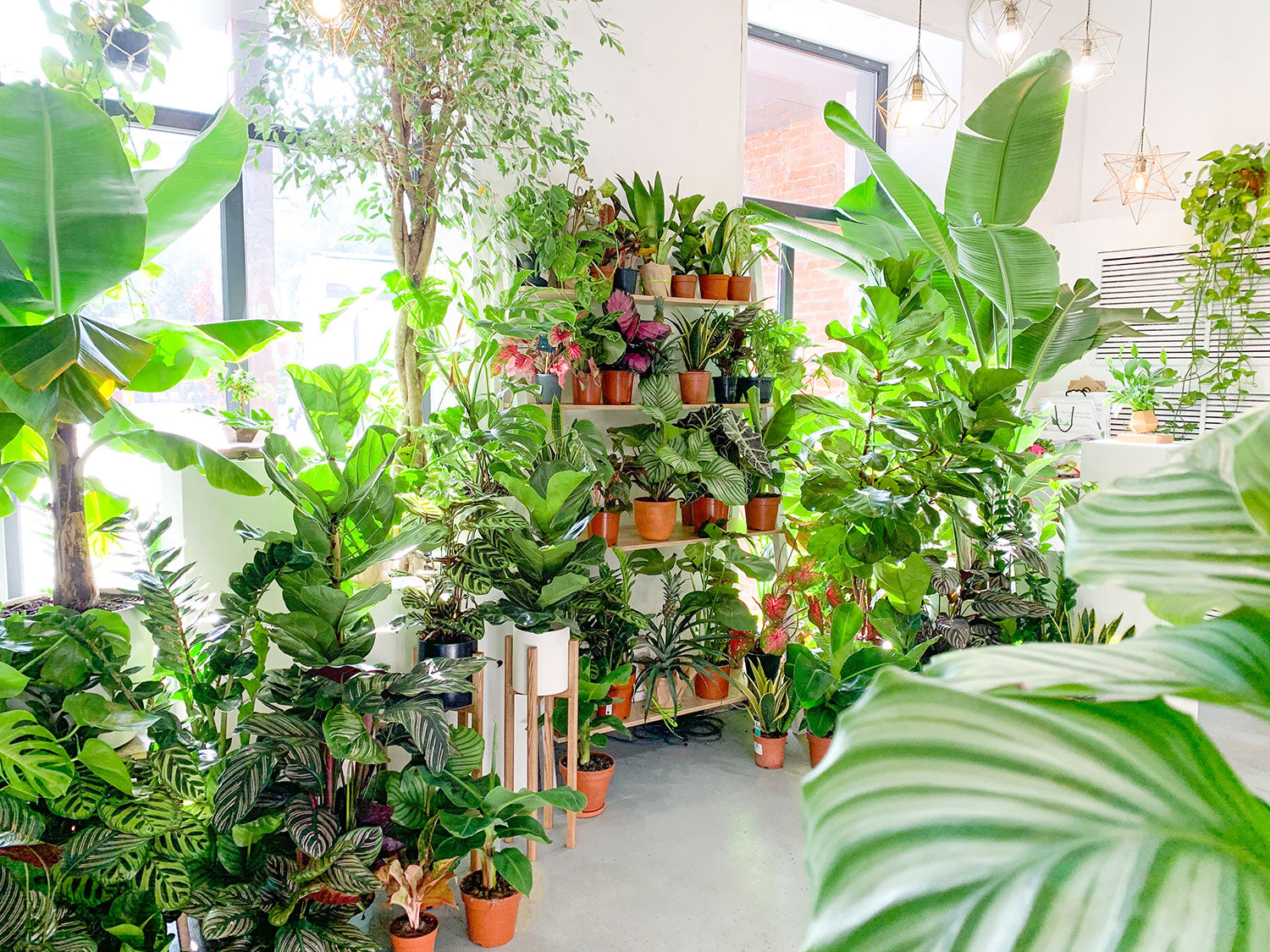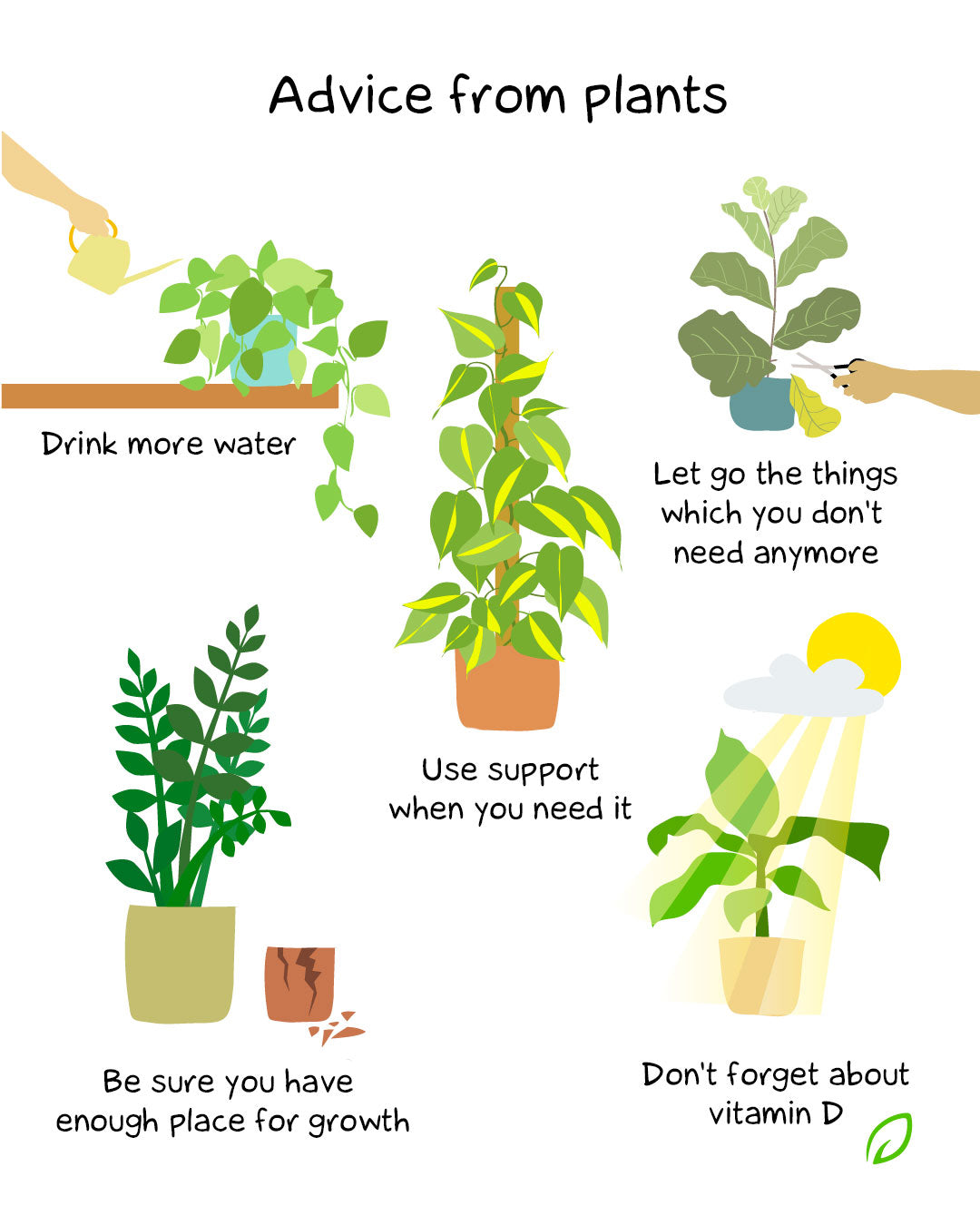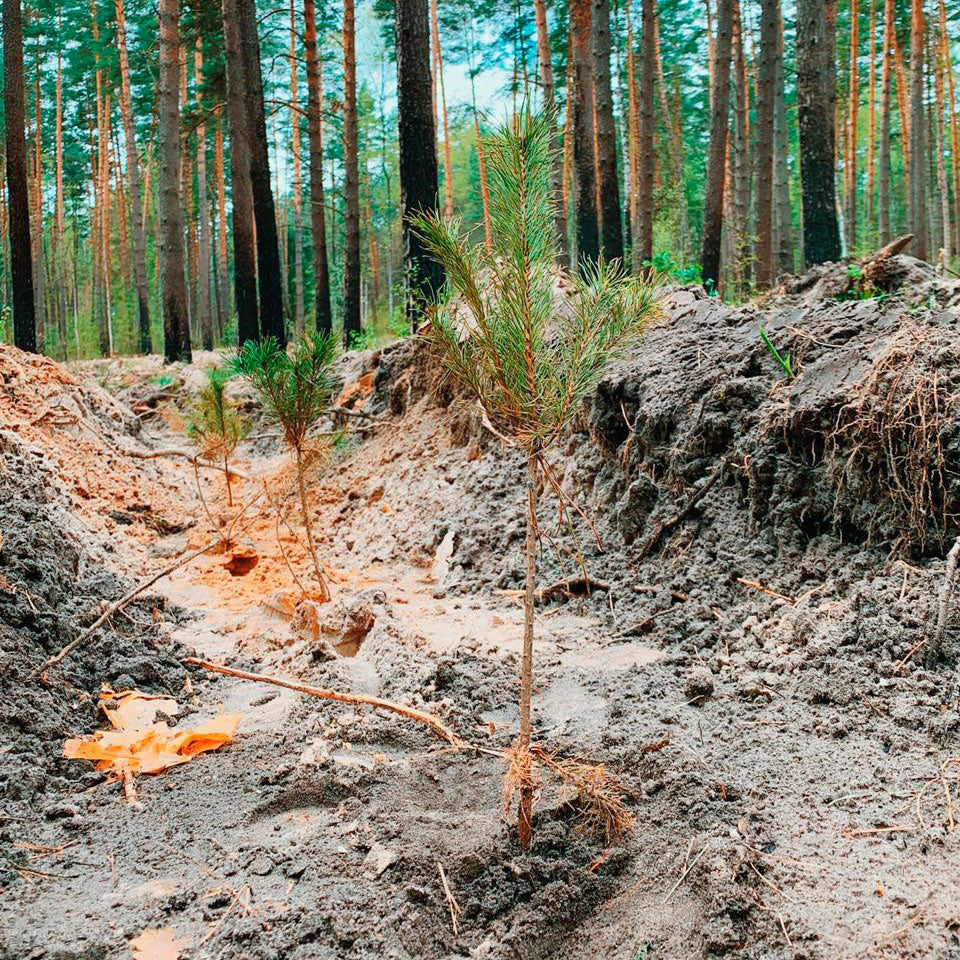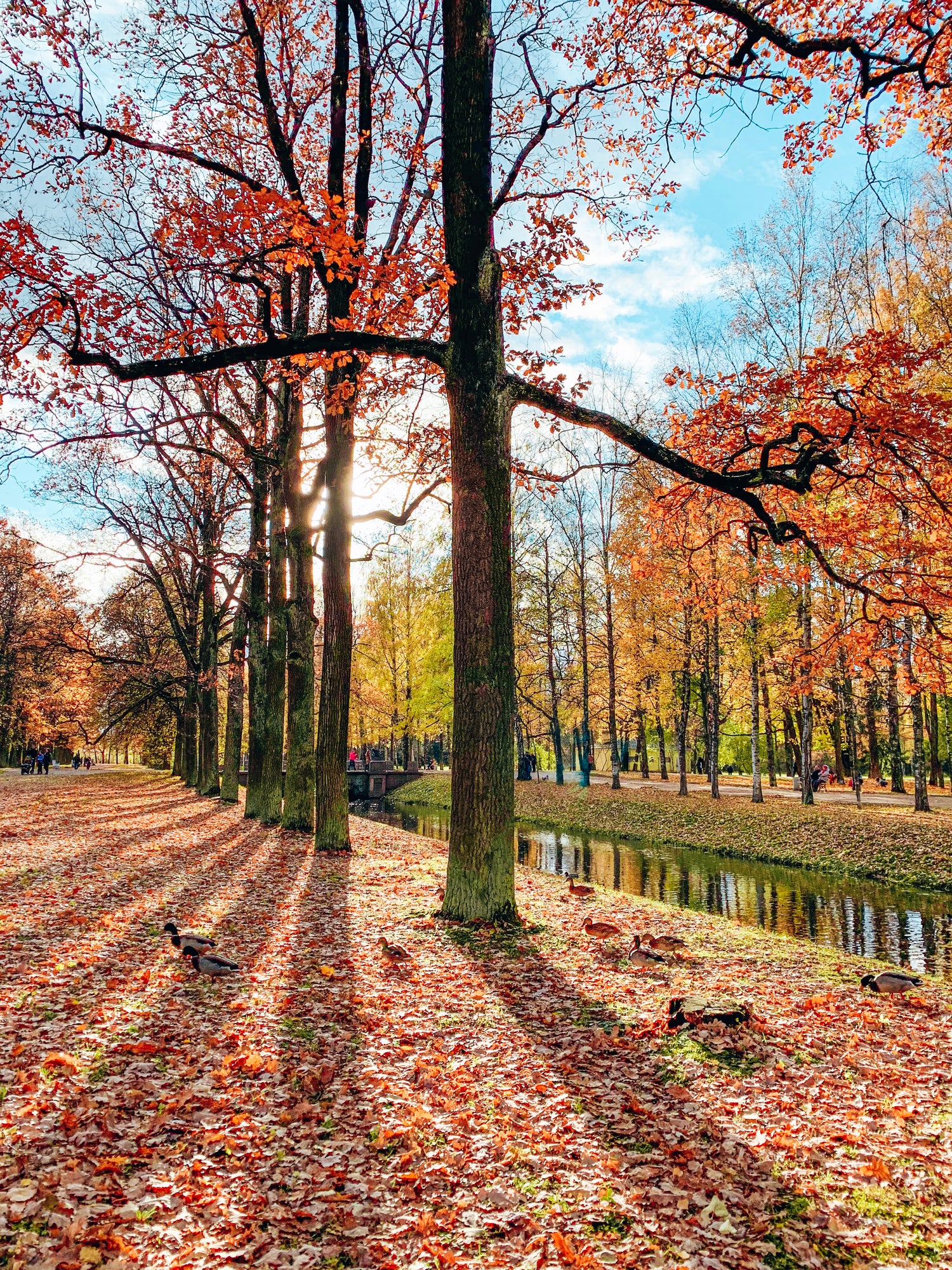
What Can Plants Teach Us
Plants are silent companions of our lives, sometimes they seem just a background pleasing to the eye. But in fact, this green background determines our lives and the lives of all creatures on the planet. At first sight static and predictable, plants lead a creative and dignified life, not being the passive survivors, but the real masters in the art of adaptation. Having no eyes or ears, they can perceive the world; without being able to run and fight they respond to environmental competition. They fascinate us with their ability to transform themselves. They've not just learned how to survive in a changing and often even hostile environment, — they make this environment better.
Without the ability to talk, plants heal our souls and can teach us a few important life lessons, if we watch closely.

Aspire For Growth And Continuously Developing
Plants just grow as far as conditions allow, they don’t limit themselves. By convincing ourselves these harmful ideas — that we can’t do something, or we’re not smart or capable enough — we limit our capabilities. The worst thing is when it feels like we don’t deserve to reach the heights. Probably everyone has seen how a tiny little tree keeps trying to grow when it meets an asphalt surface. And finally overcomes it. It’s good to be self-aware and realistic about our strengths and weaknesses, but we should not allow ourselves to be discouraged and underestimate ourselves. Plants teach us: we can thrive if we want to.

Challenges Build Character And Resilience
A tree which is living under the constant influence of strong winds grows mighty roots and strong trunks. Standing against natural elements, it becomes stronger and stronger. No one can avoid problems at all. Successes and failures alternate to hold a life in balance. But look back at your past experiences and difficulties: they are likely to have been a good life lessons. We don’t develop in a comfort zone as well as if we dare to get out of it and take a step towards the unknown.

Never Stop Reaching For The Light
Plants do not have the habit to complain of their hard life, annoying weeds around and constant insect attacks. The sunflower turns to the sun and bask in the sunshine to gather all its forces for the main goal — growth. It is good to notice dangers, draw conclusions and learn from mistakes. But even more important that they do not distract us or lead us astray. By turning to the light that nourishes them, plants take care of themselves. In the same way, we have to take care of ourselves. Just like plants, we need good nutrition, clean water and air, daylight, and time to rest and recover. For mental well-being, it is essential to have interests and goals, to have trustful communication and, of course, to keep in touch with nature. To have at least one houseplant to love and take care of is to take care of yourself as well.

Being Flexible And Able To Adapt To Changings
Plants are not able to move in the usual sense of the word, but they are able to change and live in harmony with the environment, and this helps plants to thrive. It is not a question of passive adaptation, but active self-transformation. A plant in a shady, overgrown place lengthens its stalk. As long as it takes to reach the sunlight. Changes in life are inevitable. By becoming inflexible and oblique, we reduce our chances of success. Conversely, by keeping an open lively mind, it's easier to find ways to harmony and happiness. At the same time, some things just happen. Such things just have to be accepted, it’s not always possible to change things. Have you seen how cleverly a tree trunk goes around a fence? It just goes round the obstacle and continues to grow. Green teachers show us: the main thing is not to lose heart —some obstacles can be bypassed, and others can be adapted to.

Leading Creative Lifestyle
We are used to taking plants for granted and rarely remember what a miracle of nature they really are. By their very existence, they make life possible on this planet. We are grateful to plants for the air and food for living beings, space for numerous animal species, raw materials for making things and medicines. And, of course, for their living beauty, which reminds us of our connection to nature. It is amazing how many values and benefits one living creature is able to give to others, this realization is inspiring. You've been wondering: what am I doing for others? Do I want to live my life not only consuming benefits, but also creating them? We believe that having meaning in life makes us happier, gives us strength to move forward. Each of us has our own, very different meanings, but we know for sure: helping others gives additional meaning to one's life. Feeding a stray cat or just being close to loved ones who need support — everyone can help others, we are not talking about feats and self-sacrifice. Sometimes the smallest thing is enough.

Living A Life Of Your Own
Plants don't need approval to be who they are. They don't try to grow to be like others. A cornflower in a field of wheat stays a blue cornflower and will never try to pretend to be wheat, change color, and grow an ear of seeds. Every plant has its own «understanding» of its life purpose and «awareness» of its uniqueness. They live each day in harmony with their essence and life purpose, producing young leaves one after another. Each plant has its own needs and life program. We are not born with an understanding of our destiny. Some people become aware of themselves early enough to find their life's work and gain understanding of themselves, while others have a long way to go. We believe that the most important thing is not to give up, keep trying to find ourselves, our own meanings and goals, not to start imitating others. Living someone else's life will not make us happier. We are all different and everyone's happiness is different, but once we find it, we thrive.
Living At Your Own Pace
Plants are flexible and adaptable to changes in the world around them, and yet they grow at their own pace and in their own time. We can be impatient to see a new leaf on our favorite plant. But it has a period of active growth and a dormant period and should be allowed to rest and gain strength. If you fertilize the plant at this time, it will deplete its vitality. In today's world, many people live as if they are in an endless race. Rest is often insufficient or not provided at all, and we continue to look for ways to become more productive, to manage even more. This is a dangerous path that drains internal resources. Sometimes it is important to slow down, to include not only dozens of tasks in your to-do list, but also rest, time to take up hobbies or just to be to be near your loved ones.

